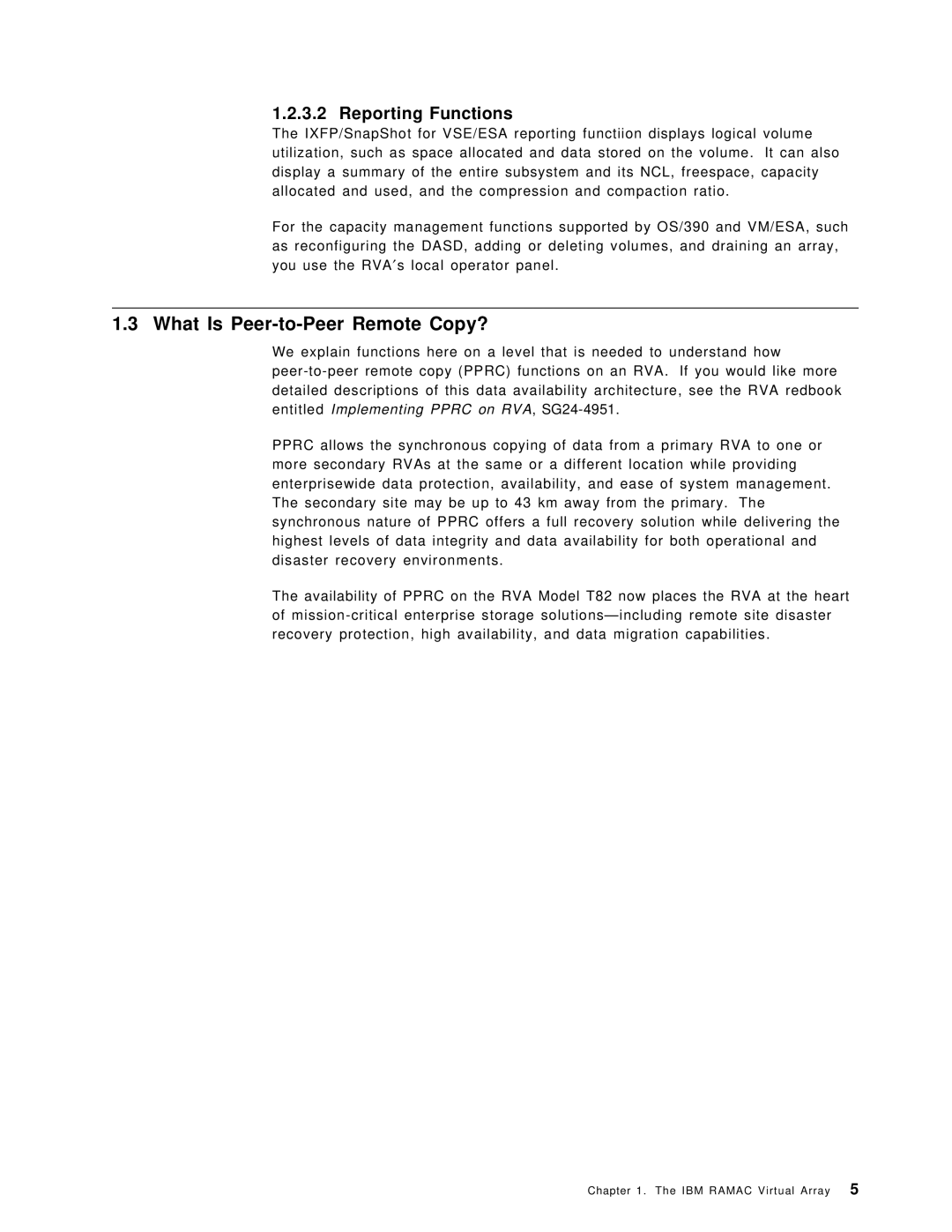1.2.3.2 Reporting Functions
The IXFP/SnapShot for VSE/ESA reporting functiion displays logical volume utilization, such as space allocated and data stored on the volume. It can also display a summary of the entire subsystem and its NCL, freespace, capacity allocated and used, and the compression and compaction ratio.
For the capacity management functions supported by OS/390 and VM/ESA, such as reconfiguring the DASD, adding or deleting volumes, and draining an array, you use the RVA′s local operator panel.
1.3 What Is Peer-to-Peer Remote Copy?
We explain functions here on a level that is needed to understand how
PPRC allows the synchronous copying of data from a primary RVA to one or more secondary RVAs at the same or a different location while providing enterprisewide data protection, availability, and ease of system management. The secondary site may be up to 43 km away from the primary. The synchronous nature of PPRC offers a full recovery solution while delivering the highest levels of data integrity and data availability for both operational and disaster recovery environments.
The availability of PPRC on the RVA Model T82 now places the RVA at the heart of
Chapter 1. The IBM RAMAC Virtual Array 5
